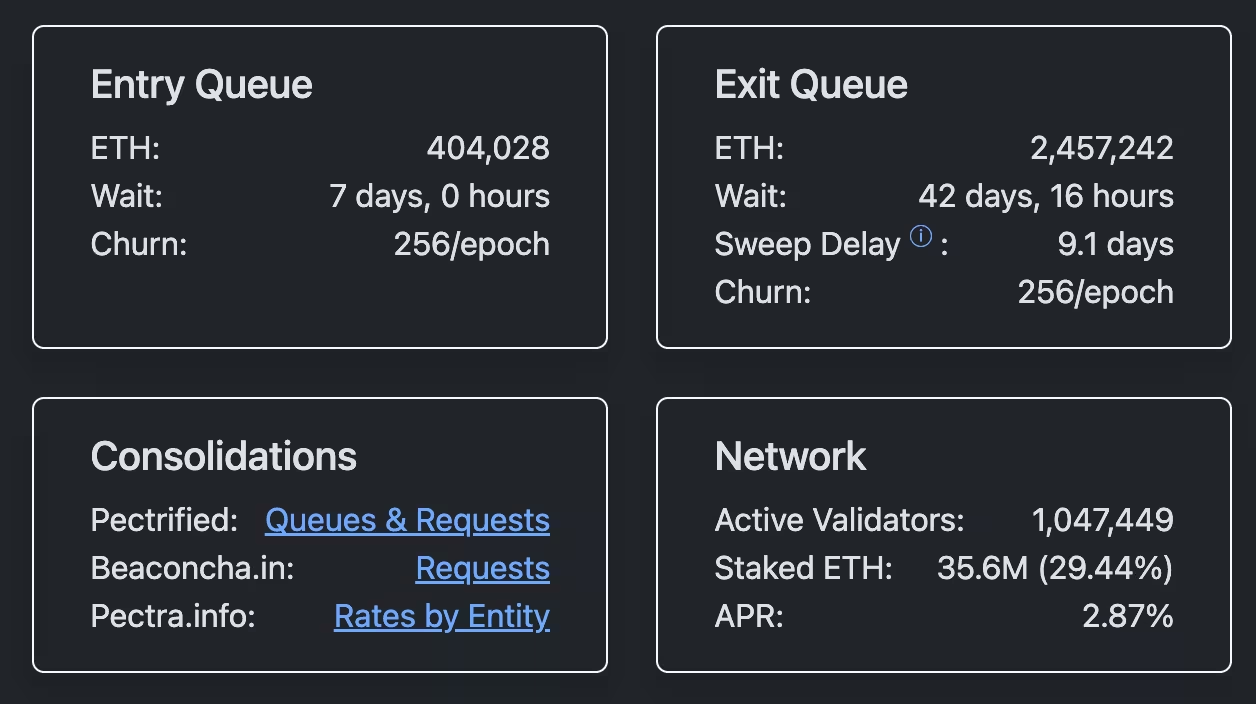2 Minutes
Fusaka targets Ethereum base layer limits
The Fusaka upgrade is designed to ease growing pressure on Ethereum's base layer amid criticism that Layer 2 rollup strategies have fragmented the ecosystem. By prioritizing core infrastructure enhancements, Fusaka aims to expand base layer throughput while still enabling Layer 2 adoption and scalability.
Validator queues and network security
Recent debate over validator queues has highlighted persistent scalability and participation challenges. According to a Cryptonews report covered yesterday, over 2M ETH is currently waiting in exit queues with delays of around 43 days, whereas entry queues are processed in roughly 7 days.

Ethereum Validator Queue
Ethereum co-founder Vitalik Buterin has defended the slower exit process as a deliberate security measure, likening the validator commitment to a form of service that requires "friction in quitting" to protect the chain.
Infrastructure focus: data availability and node efficiency
Fusaka emphasizes improvements to data availability and node performance. Those changes are intended to make the base layer more capable of supporting diverse Layer 2 solutions and to reduce the operational burden for node operators—key factors for long-term decentralization and resilience.
Market and institutional context
The upgrade arrives amid rising institutional interest in Ethereum infrastructure. VanEck recently projected that Layer 2 networks could reach a combined $1 trillion market cap within six years, underscoring demand for scalable, interoperable solutions.
Cross-chain coordination and security initiatives
Fusaka complements cross-chain and security projects such as the Open Intents Framework. Coinbase Payments has joined as a core contributor to that effort, which seeks to standardize cross-chain intent handling and help curb an estimated $21 billion increase in cross-chain crime. Together, these coordinated efforts aim to reduce fragmentation while preserving Ethereum's security and decentralization principles.
Source: cryptonews


Leave a Comment